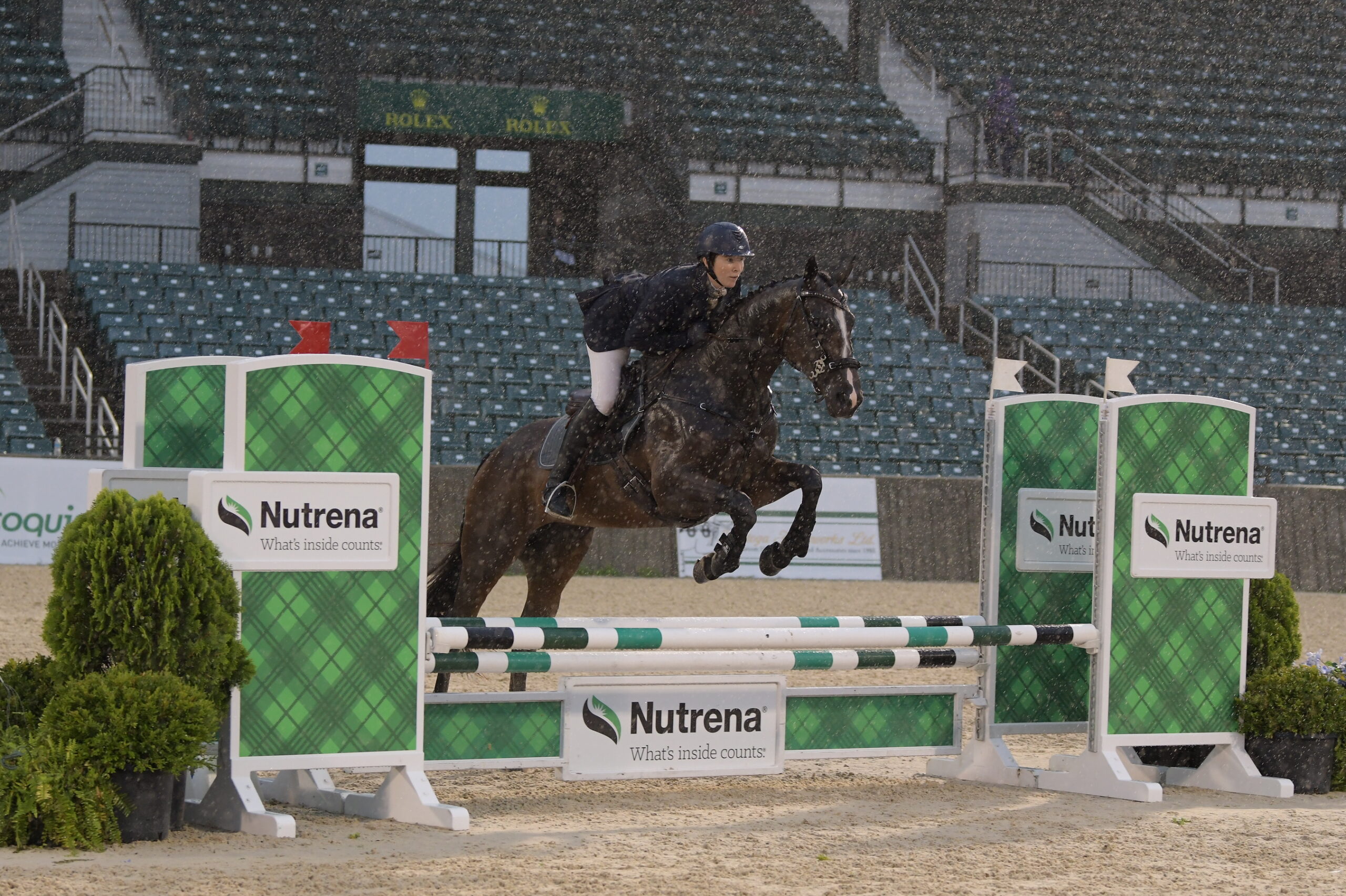Question: So I'm curious how you got into dressage.
Jenna: So, I do dressage and I do three-day eventing. We do both. I’m from Wisconsin originally, and I started taking lessons up there. I started in hunter and then got a little taste there, so I actually switched over to eventing first. As a kid, I didn’t like the dressage part. I got through the dressage so I could get to the cross country, which is the fun part <laugh>.
And then as I got older, I started to appreciate everything that dressage was and realized how we needed it for all the training — for the horse’s development muscles, the rider’s strength and ability. So I started to embrace it a little bit more and then realized I needed to kind of go back and learn a little bit more about it <laugh>.
So I really delved into it, and that’s what I’ve kind of stuck with.
Question: And so it must require a lot of patience?
Jenna: It does. It takes a lot of patience <laugh> and, it’s a lot. So we teach a lot of biomechanics with it. It’s all body awareness, learning how your body affects the horse’s body. The horse basically mimics what we do. If we drop a shoulder, they collapse a shoulder. If we collapse our hip or pick up our hip, they do the same. They try to mimic us to stay in balance with us. A lot of what people consider bad habits or bad traits that horses have actually stem from the rider.
Question: Interesting. And by fixing the rider, you actually fix the horse? Wow.
Jenna: And that’s the basis of dressage, the heart of classical dressage, using biomechanics to just kind of become one with the horse and work in harmony with the horse. And so it translates over to all the jumping stuff as well, because if you’re balanced and have that level of precision and that communication between you and the horse, you add jumps in there and it really doesn’t change a whole lot.
Question: So did you love horses always?
Jenna: Yes. I’ve always loved horses. I didn’t grow up with horses, but my grandfather had some horses. He had a mink ranch up in Wisconsin and he boarded some horses. I was always in by the horses when I wasn’t supposed to be, I was always trying to feed them. I was always trying to do something that I wasn’t supposed to with the horses. So my parents finally got me riding lessons for my ninth birthday. And in their mind they thought that this was going to be a few lessons here and there and move on to something else. They had no idea they could buy a horse and be traveling all over the country with the horse <laugh>. They got kind of thrown into that one. It just escalated from there. And I kept going.
My old horse, I just lost him last December. He was 31 years old. He was my first horse that I got when I was 11 and competed him all the way up the levels.
Question: I’m so sorry. How did you get to Texas?
Jenna; I was working at a boarding stable, and I started to realize that I needed to learn a little bit more about the other disciplines. I showed in the Paint Horse Association, and then came to Texas to work at Pilot Point for Jason Martin and Charlie Cole at High Point. I did mostly English, but got into a little bit of trail and Western riding. It helped me be able to ride some different style horses and learn about those disciplines.
In 2009. I moved down to this area and started on my own again, down here. I had thought about going back to Wisconsin, but didn’t really like cold weather. So I decided I like Texas. I was going to stay in Texas.
Question: And you can tolerate the heat?
<Laugh>. So when it’s 110, I grumble a bit, but. . .
Question: That's a great story. All of that background has to make you a better teacher and coach.
Jenna: It helps a ton. Just learning about the different disciplines, the different styles, and being able to get on those horses and work with them really helps. Cause like I said, I get people from all walks of life that come to me for lessons. Some people have had courses in other disciplines. Being able to make that transition over to dressage for them or over to an event team has really helped bridge that gap.
Rehab has been a big part of our program too. There are a lot of dressage and event trainers that don’t do rehab with horses — when they’re coming back from injuries, things like that. They just send them off for the rehab and then bring the horse back once it’s better. We like to do the rehab ourselves. I like to see the horses come through the whole process of rehabbing, whatever the injury is, and get back to full work. And it’s really been a big part of our program now.



